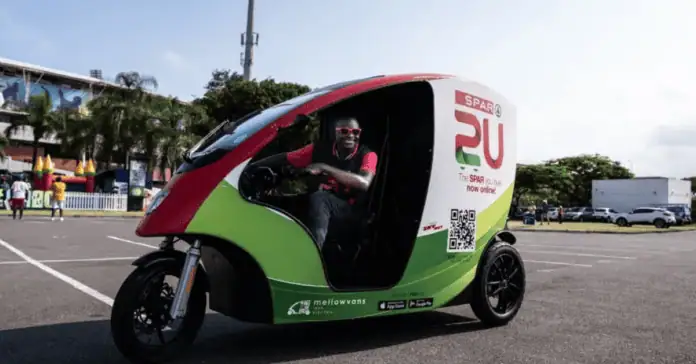The Stellenbosch company explains why businesses are starting to take their vehicles seriously.
By Larry Claasen
IT hasn’t been an easy ride for MellowVans when it came to developing its electric delivery vehicles and creating a market for them.
In the last few months, however, its efforts have started to pay off, as large corporations like DHL, Takealot, Spar and Woolworths have all deployed them as part of their delivery fleets.
Aside from local interest, there is also growing overseas interest in MellowVans vehicles.
MellowVans founder Neil du Preez explains to CBN what led him to come up with the concept of an electric vehicle (EV) to be used as a commercial delivery vehicle, why it makes economic sense for businesses to use it, and the pros of operating from Stellenbosch.
CBN: What led you to come up with the idea of developing battery-powered commercial vehicles?
When I was younger, I spent some time in the Far East, where I noticed small electric vehicles starting to emerge in various forms. The humble tuk-tuk, still the primary mode of transport for much of Asia, was everywhere.
However, I found the tuk-tuk to be a rather unpleasant and outdated vehicle. That’s when the idea struck me—to completely modernise the tuk-tuk, making it sleek, safe, and electric.
The delivery functionality came later, driven by the rise of e-commerce and the challenges brought on by the pandemic, which highlighted the need for efficient and sustainable delivery solutions.
CBN: What was the bigger challenge; developing the technology or getting the market to buy into the concept?
Both were exceptionally challenging. Developing the technology was one thing, but conforming to regulations was an entirely separate hurdle.
Hardware development is notoriously expensive and slow, regardless of where you are. Doing it in South Africa added another layer of difficulty due to our geographic isolation and other unique factors.
CBN: What has led to so many businesses using the MellowVan?
The main reason businesses choose MellowVans is that they save money. Operating costs are as low as 15 cents per kilometre, and the vehicle offers 2,5 m³ of cargo space—significantly larger than competitors.
This allows clients to deliver more parcels in a single trip compared to delivery motorcycles. Additionally, MellowVans replace expensive delivery vans, which are not only costly to operate but often oversized for most urban delivery applications.
CBN: Can you keep up with demand?
We can comfortably meet Southern African demand from our Stellenbosch facility.
However, as demand in Europe and other regions continues to grow, we’ll need to explore localised assembly or production to keep up and better serve those markets.
CBN: And how is it being based in Stellenbosch?
It’s a fantastic location with a great lifestyle, close proximity to the university, and access to a skilled labour force—all of which make it an ideal place for our operations.















